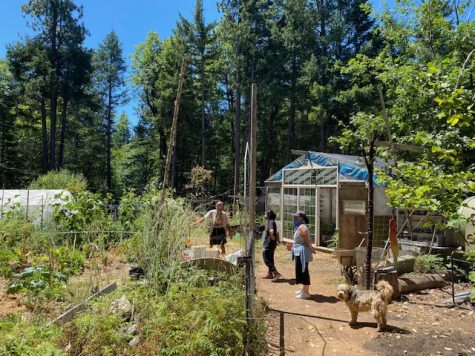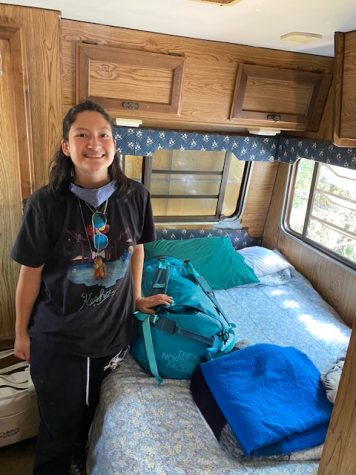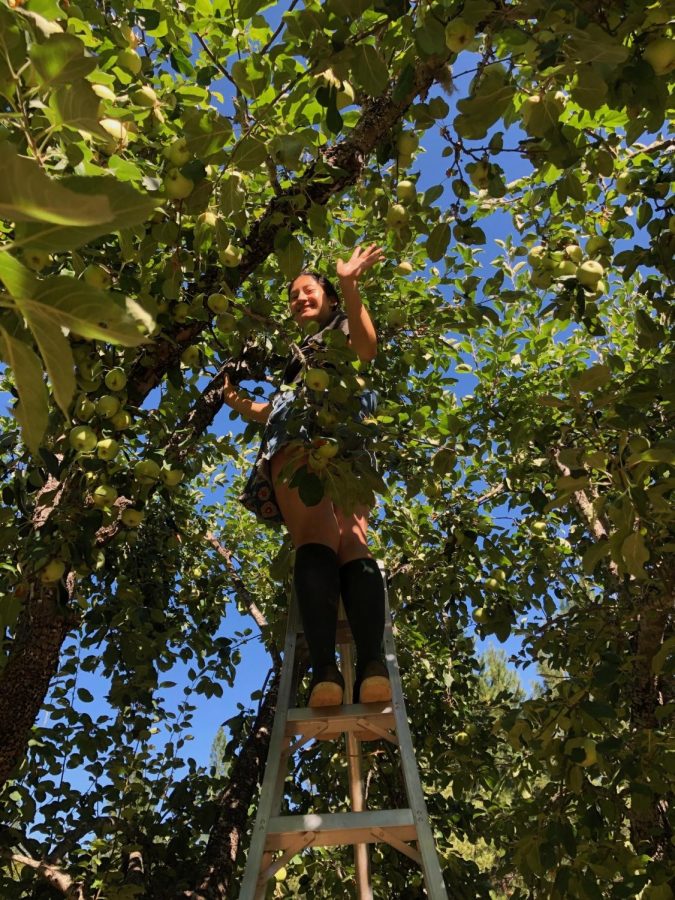Learning from the Land: Samantha’s Story
February 28, 2021

In the fall of 2018, life was good for then high school senior Samantha Wong. She had the complete “high school package”: full resume, outstanding grades, and completed college applications. By early 2019, in came college acceptances, including an offer to her ultimate college destination, Sarah Lawrence College, a liberal arts college in Yonkers, New York. Her academic journey followed a nicely laid path — high school studies, hard work, excellent testing scores, applications, and college. And by fall 2020? Wong indeed finds she has gained so much—life lessons, new philosophies, science knowledge, and new relationships.
But not from her dream college; it was all from a small farm out in Southern Oregon.
The COVID-19 pandemic has forced many recent graduates to step off the path they anticipated, causing them to re-examine traditional college choices or at least look for a temporary detour.
With many students finding online education inadequate, options such as working, internships, or taking time off provide some recent graduates with perspectives outside of the linear, “head down, go to college, and get a degree” approach. Although many were forced off their path by circumstances beyond their control, the insights they are gaining may be a reason for all young people to stop and examine what route they should take toward their future path.
In Wong’s case, she was proceeding towards a liberal art major when COVID-19 derailed those plans. Due to on-campus college closures, Wong left Sarah Lawrence for home, disappointed that her education and new social circle were taken away from her.
“I was working hard, and it was disappointing to see how quickly things can get taken away from you. I did my best with online school, but it was a struggle for me. The education I was promised was not going to be available for a long time. I was not willing to spend the money for that, and it cost my health with stress and anxiety… so I decided to call it quits,” Wong said.
This decision would prove to be transformative.
“The COVID pandemic was a transition to my looking for an internship,” Wong said.
Back at home, chance inspiration from watching a movie, “The Biggest Little Farm,” led Wong to discover a farm internship with Worldwide Opportunities on Organic Farms (WOOF).

WOOF is an organization that aims to promote worldwide interest and knowledge in ecological farming practices, in part by linking organic farmers with students and interns. Within a week, she was placed at a local farm in Selma, Oregon. There she met Roan Wadsworth, a fellow WOOFer who works with Samantha at the same site.
From a liberal arts college in upstate New York to a small farm in southern Oregon’s rural woods, Wong has been experiencing life experiences vastly different from those at college in New York or during her childhood in urban San Francisco.
“Smelling the clean air, swimming in the creek, climbing in trees… I can’t remember the last time I did those things. Every day I am doing something new. One of the highlights of my experience here was building a “cobb shower”—a hard-drying mud construction. Getting my hands dirty and problem-solving how to grow and build what we need is priceless education that I wouldn’t have gotten in a classroom,” Wong said.
Wong realized that stepping outside of the structured environment of college, she learned much greater lessons about basic self-sufficiency, away from the comforts of the big cities.
“It’s incredibly empowering to understand how to take care of yourself and be self-sufficient and not be reliant on a certain structure. If grocery stores were to close—where do you get your food? Where do you take care of yourself when structures are more insecure than you think?” Wong said.
If it weren’t for the pandemic, Wong would likely have continued along the linear college path. More high school students traditionally plan for a two-year or four-year college than gap years or internships.

